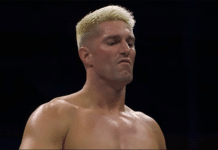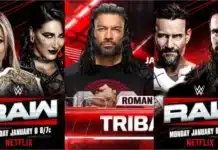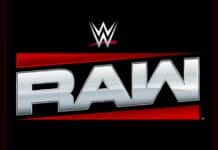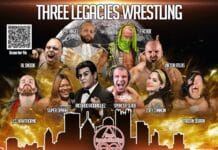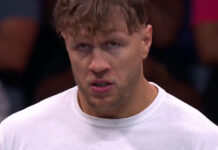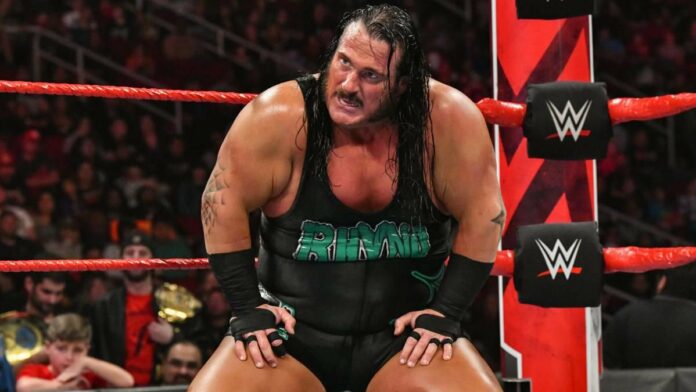
This week marked nineteen years since the ECW Hardcore Heaven 2000 pay-per-view that was held in Milwaukee, Wisconsin in front of an estimated 3,500 fans. The event is noteworthy as a representation of the latter stages of the company, both for why it eventually went out of business and also the potential it had in the future.
While the under card consisted of a three-way dance, a Kid Kash/CW Anderson bout, and a tag team three-way that were nothing spectacular, but decent enough, it was actually the opening match that had more of an impact on the direction of the organization. Masato Tanaka, the FMW import that had some incredible matches with former champion Mike Awesome the previous two years, defeated Balls Mahoney in a relatively short, but physical match. In retrospect, the chair shots in this match are cringe worthy, especially because of the information known now about head trauma and concussions. Tanaka pinned Mahoney, but this was the last PPV appearance for him, as he left the company to return to Japan shortly afterwards. Given the fact that Mike Awesome jumped to WCW less than a month prior to this, it took more depth away from the roster when another former champion departed. It was well-documented that Awesome left because of bounce checks, but it’s not known if Tanaka concluded his run because the company couldn’t afford him or if he simply wanted to return to his native country. Regardless of the reason, it can’t be understated how much his exit took away from the star power of the organization. Awesome was pushed as a monster that ran through everyone, and Tanaka was one of the few that had multiple wins against him when they traded the ECW heavyweight title. Within the span of roughly four weeks, ECW was without two athletes that were a pivotal part of the title picture for several months prior to that. At a time when the league tried to keep pace with their multi-million dollar competition, the FMW working agreement was one of the unique aspects that they could promote, but much of that left with Tanaka after this event.
The New Jack/Angel brawl was more or less what you would expect from the typical New Jack segment with the exception of a particularly insane balcony dive where he dove from a further distance than usual. A few things to note from this portion of the event, including that the New Jack run-ins while somewhat repetitive in retrospect, were so well placed and well done that it had more longevity as a part of the events. That being said, the real-life Jerome Young wasn’t an in-ring technician, but had tremendous talent in his prime. He brought an authenticity and a unique persona to the industry. More than that, if he could’ve separated his character from business outside of the ring, he had the ability to do more in wrestling than to just be typecast as an ECW act. Make no mistake about it, Jerome Young could’ve been a valuable asset to ROH or TNA on a regular basis in the years that followed the shutdown. Unfortunately, New Jack legitimately beating up an elderly Gypsy Joe with a bat or stabbing an untrained opponent at a sparely attended independent show were the incidents that he was most known for after his run in the company. Angel is an interesting prospect as well because when the market got flooded with talent post-ECW, he didn’t really get the chance to do more in pro wrestling, but he seemed to have some potential in 2000. More specifically, his feud with New Jack garnered him some notoriety, mostly because he had rare victories against him.
One of the more notable matches from this event was the Tajiri/Steve Corino bout, as it showcased two athletes that would’ve been able to be elevated up the card if the group continued after 2001. Corino had a memorable, but brief run as the champion and could’ve been someone that Heyman built the company around if the promotion didn’t close. Corino was a bloody mess in this contest and it some ways, matches like this allowed him to “earn his stripes” for the ECW audience. As he proved in his career afterwards, Corino wasn’t just a hardcore typecast, but rather had a well-rounded skill set that translated to different styles, which is exactly why he would’ve been a major star in the company if it didn’t shut down. Tajiri was already over with the crowd and his skills were always sharp so I think the argument could be made that with the right angle to set it up, he could’ve eventually been booked for a title run.
Speaking of potential and the possibility for new stars to build around, Rhino was probably the biggest prospect that had his time as a main event star halted because the extreme group went out of business. Rhino defeated Sandman and this pay-per-view also featured the infamous pile driver spot to Lori Fullington through a table. In many ways, Sandman helped make Rhino’s career since this feud put him on the map at the age of 23 with just a few years of in-ring experience. It’s disappointing that the previously mentioned flood of talent to the WWF in 2001 didn’t allow for him to get a chance at a run toward the top of the card. Similarly, even though he had a brief stint as NWA champion in TNA, the promotion missed the boat on him in 2005. Rhino is one of the most underrated of his generation because he seemed to have main event potential throughout his career.
The Rob Van Dam/Jerry Lynn match-up was basically the RVD/Lynn match they made famous in ECW, but the proper context puts this into prospective. While the match was solid and entertaining, the series had continued for over a year at this point and it seems like this contest was booked to add depth to a pay-per-view that didn’t have names like Mike Awesome, Super Crazy, or Sabu on the card. Don’t get me wrong, RVD/Lynn was always a good match, but it was a repetitive series at the time of the event.
The main event was solid and the Impact Players storyline worked, but more important than the actual match was that it was Lance Storm’s final ECW appearance. As Lance detailed in interviews, he opted to leave because of bounced checks and signed a deal with WCW less than a month later. Obviously, this was an indication that the organization was financially unstable, but it was also another situation that saw a lack of depth without Storm on the roster. Truly an underrated legend, Storm could do it all in terms of his ability to work a spot on the card. Lance could work a solid opening match to start a show or provide a main event level contest depending on where he’s booked. Lance Storm’s ability to work well with anything he was scheduled for is a valuable asset to a company.
What do you think? Comment below with your thoughts, opinions, feedback and anything else that was raised.
Until next week
-Jim LaMotta
E mail [email protected] | You can follow me on Twitter @jimlamotta

